Search for articles, topics or more
browse by topics

Search for articles, topics or more

On a weatherworn plaque in Amalfi’s historic centre, easily missed by a hurried traveller, the words of Italian writer Renato Fucini (1843-1921) express the essence of life here: “Judgment Day, for the Amalfitans who will go to paradise, will be a day like all the others.” In a place of divine beauty, the dolce vita lifestyle of Amalfi possesses an allure that has long captured the hearts of visitors from around the world.
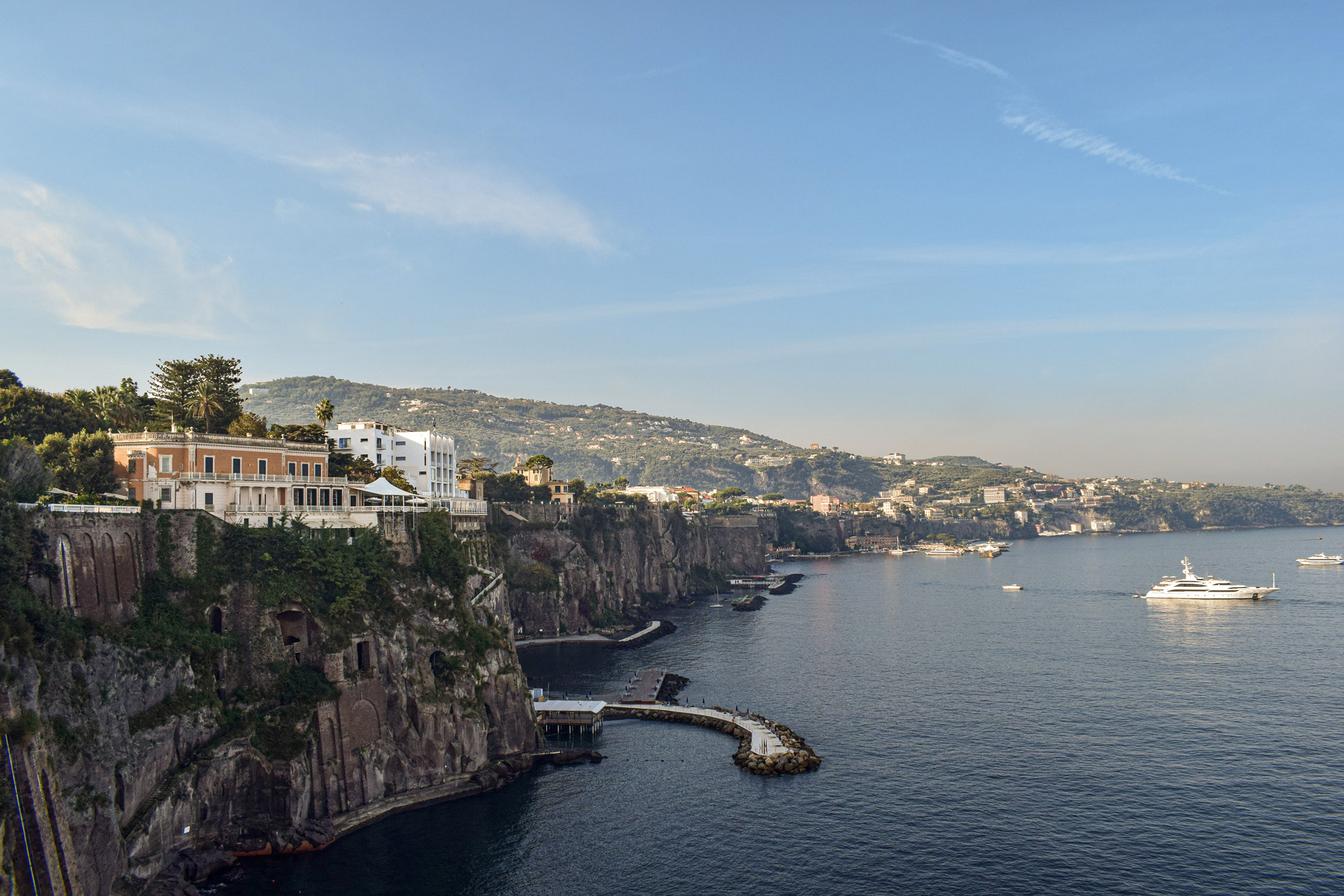
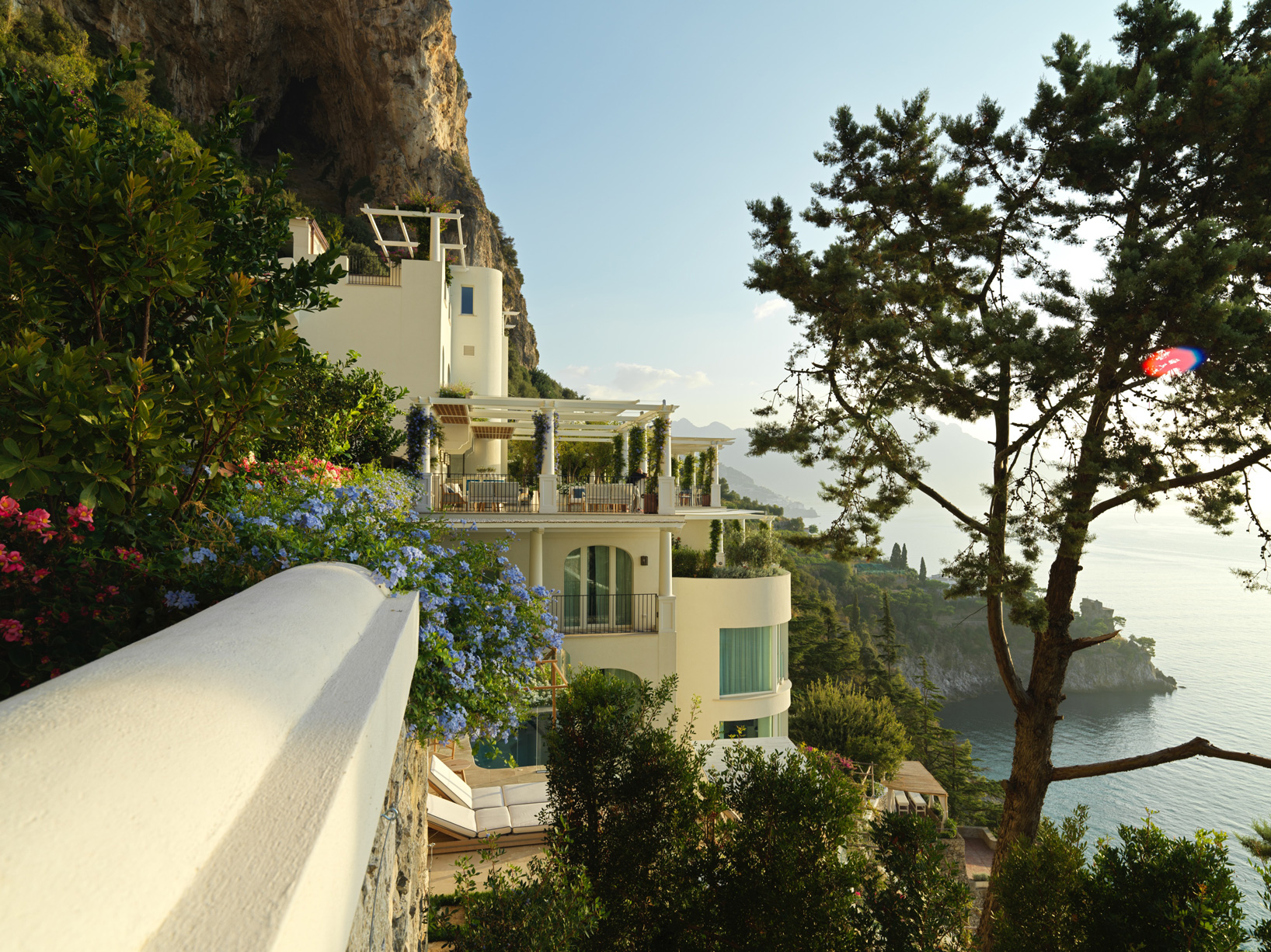
While travellers may come and go, however, it is the Amalfitans who call this place home. Don’t be fooled by their seeming nonchalance when it comes to the region’s charms: while life on the beautiful coast may play out in a leisurely fashion, the Amalfitans have a deep reverence for sharing their history and keeping their artisanal craft traditions vibrant. Stroll through the winding streets and labyrinthine staircases and you quickly learn that this is a place where history lives on and style is timeless.
Indeed, in a UNESCO World Heritage site such as the Amalfi Coast, new design means a constant re-evaluation of the past. In few places has this been done more beautifully than the recently completed Borgo Santandrea in Conca dei Marini, the first new luxury hotel to open its doors in the area in 15 years. The glamour of the building’s 1960s origins proved the seed of inspiration for an in-depth, four-year restoration by architect Rino Gambardella that celebrates mid-century design and the creative spirit of the Amalfi Coast.
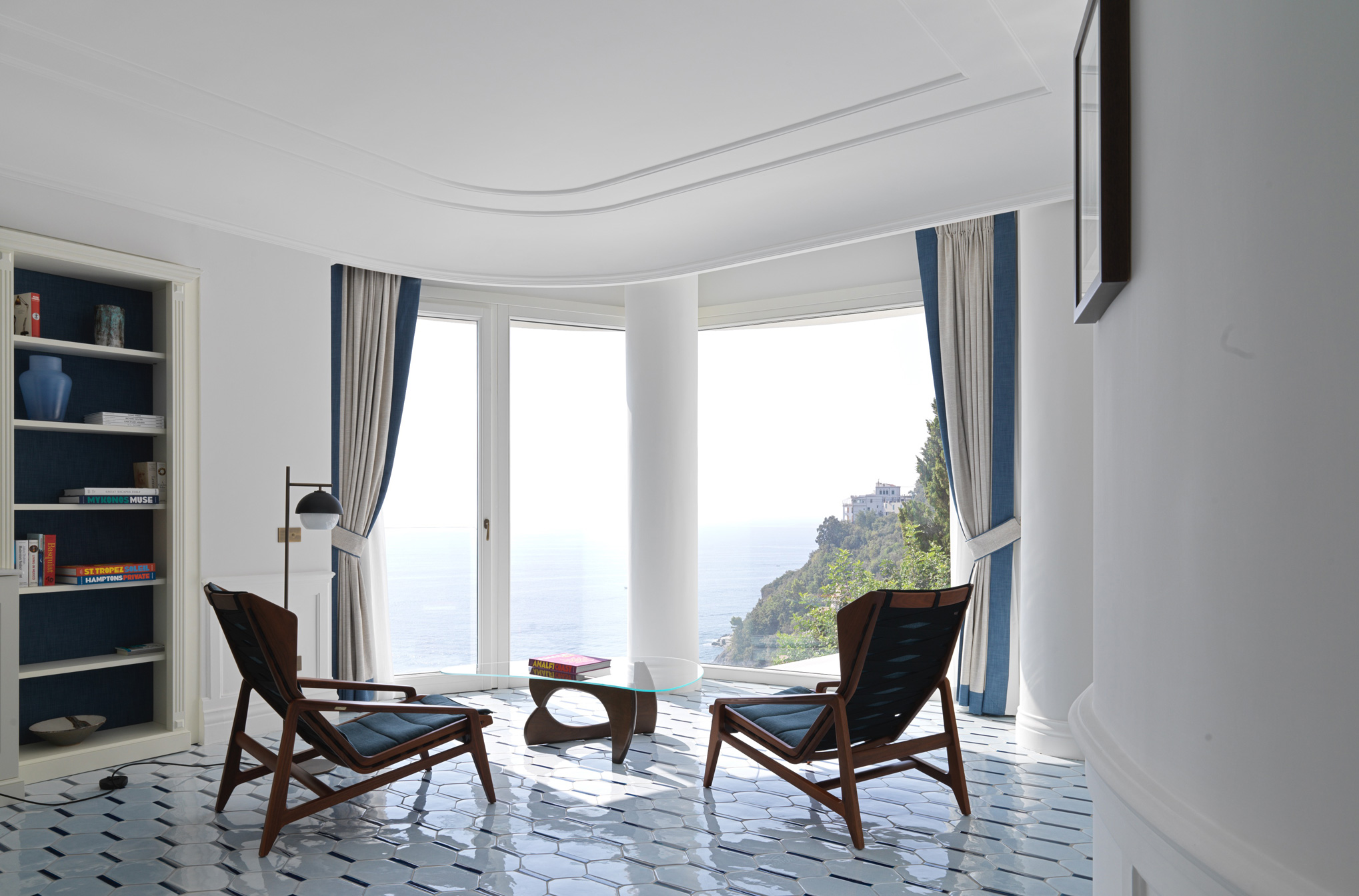 Borgo SantAndrea, Amalfi
Borgo SantAndrea, Amalfi
Every element in this blue and white Mediterranean oasis has been curated to Made in Italy perfection. Local art, design and craftsmanship are all on display, including pieces from notable ceramic artists and iconic designers such as Nicola Gallizia and Gio Ponti – both well-known presences in Molteni&C’s collection.
Indeed, Ponti’s masterful touch is also on display in Sorrento’s Parco dei Principi hotel, which he designed in 1962 and which went on to help set the tone for mid-century style, coming to be thought of as one of Italy’s first design hotels.
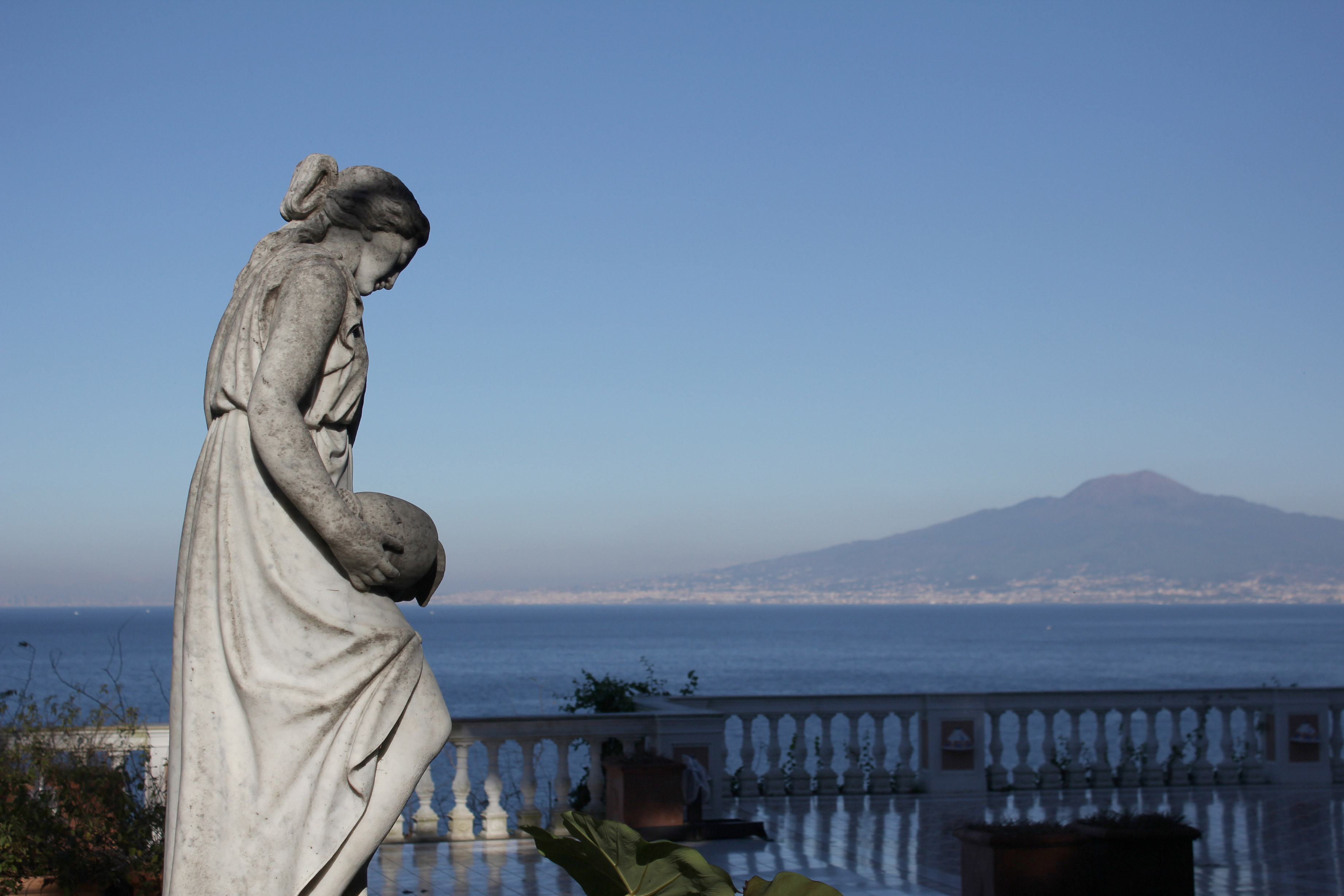
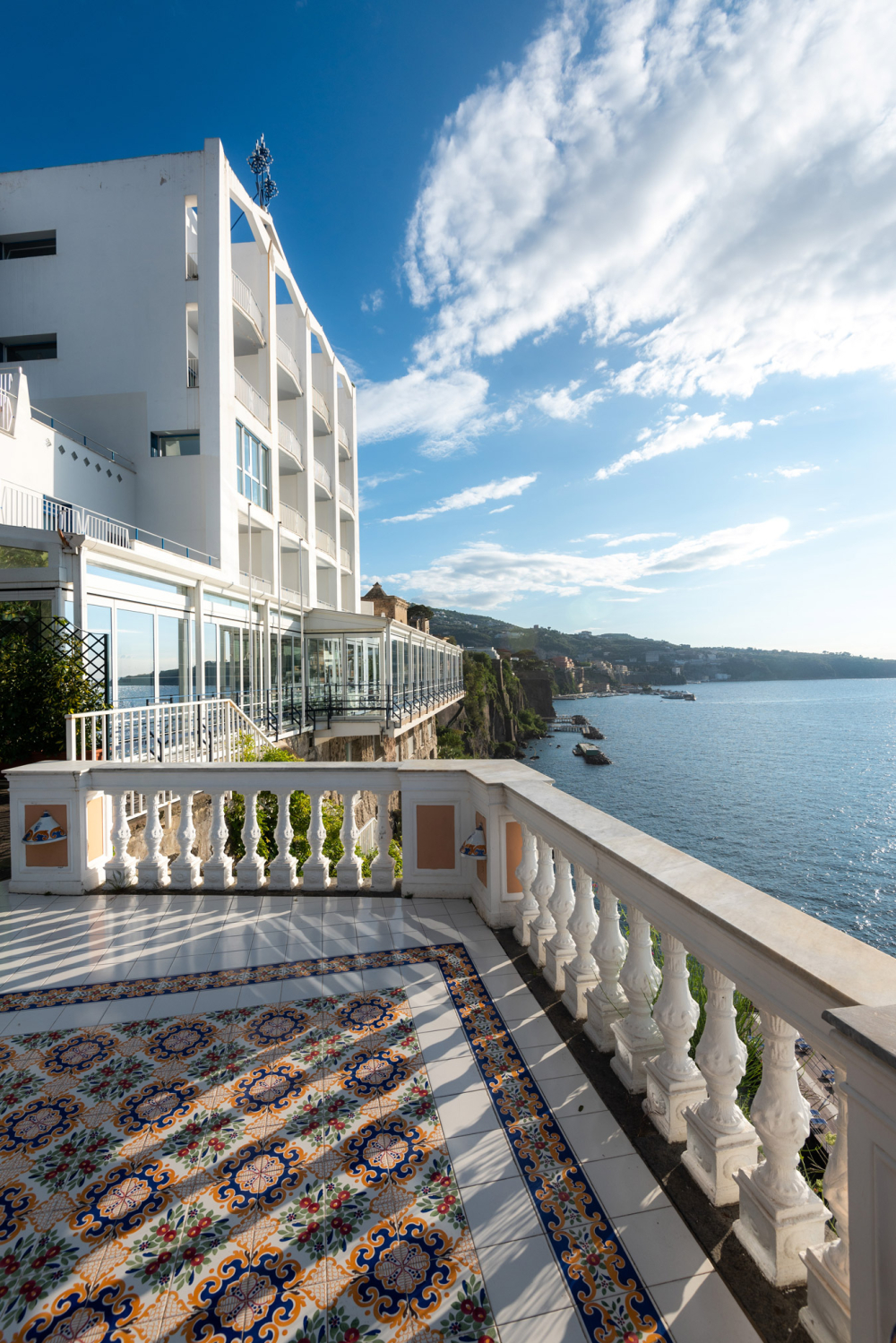
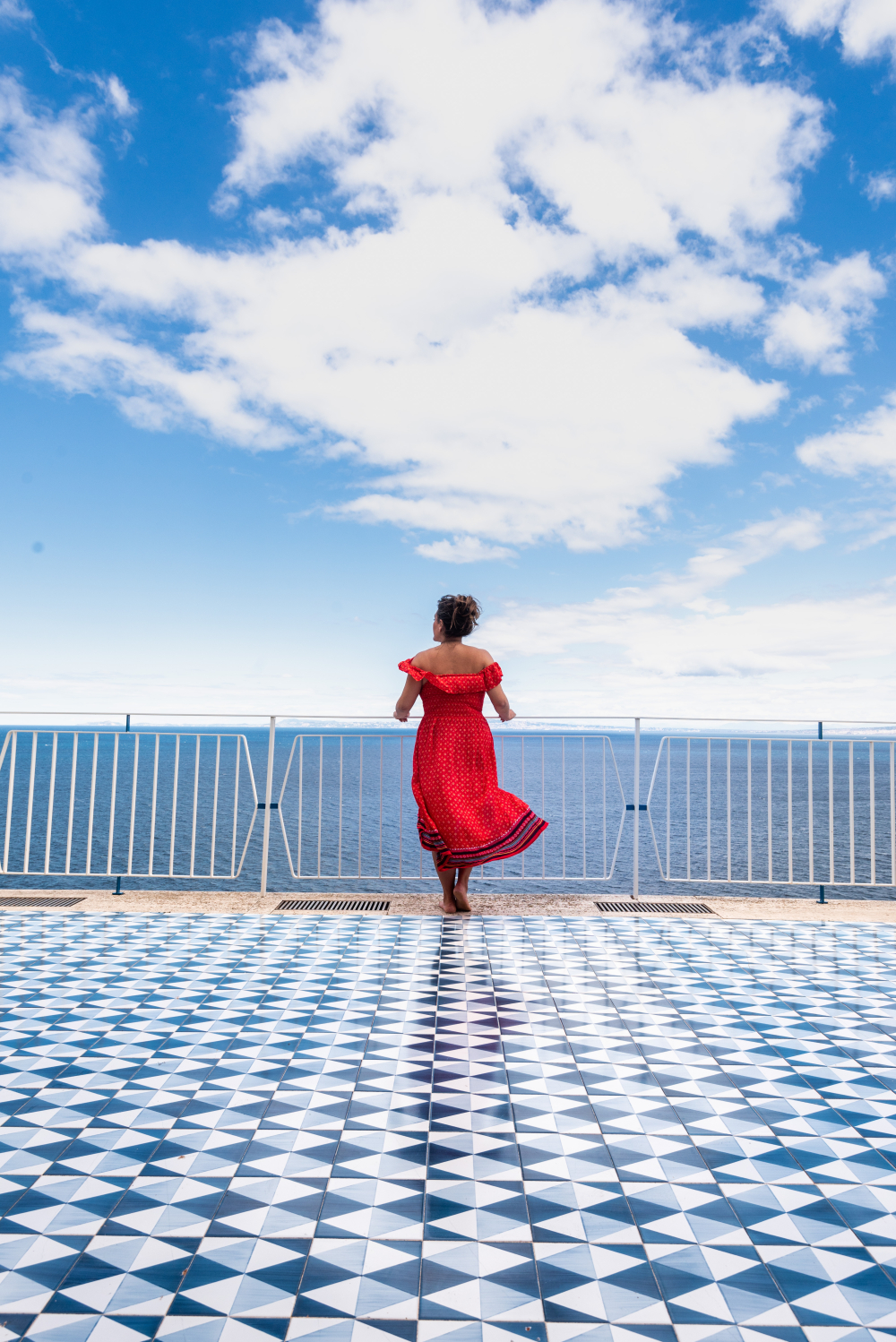

Hotel Parco dei Principi, Sorrento.
Borgo Santandrea’s sophisticated rooms and suites continue that finely curated tradition and offer perfectly framed views of the Mediterranean coastline from the cliffside setting. Meander down through the terraces of lemon and olives trees and you come to a private pebbly beach – a true luxury on the Amalfi Coast.
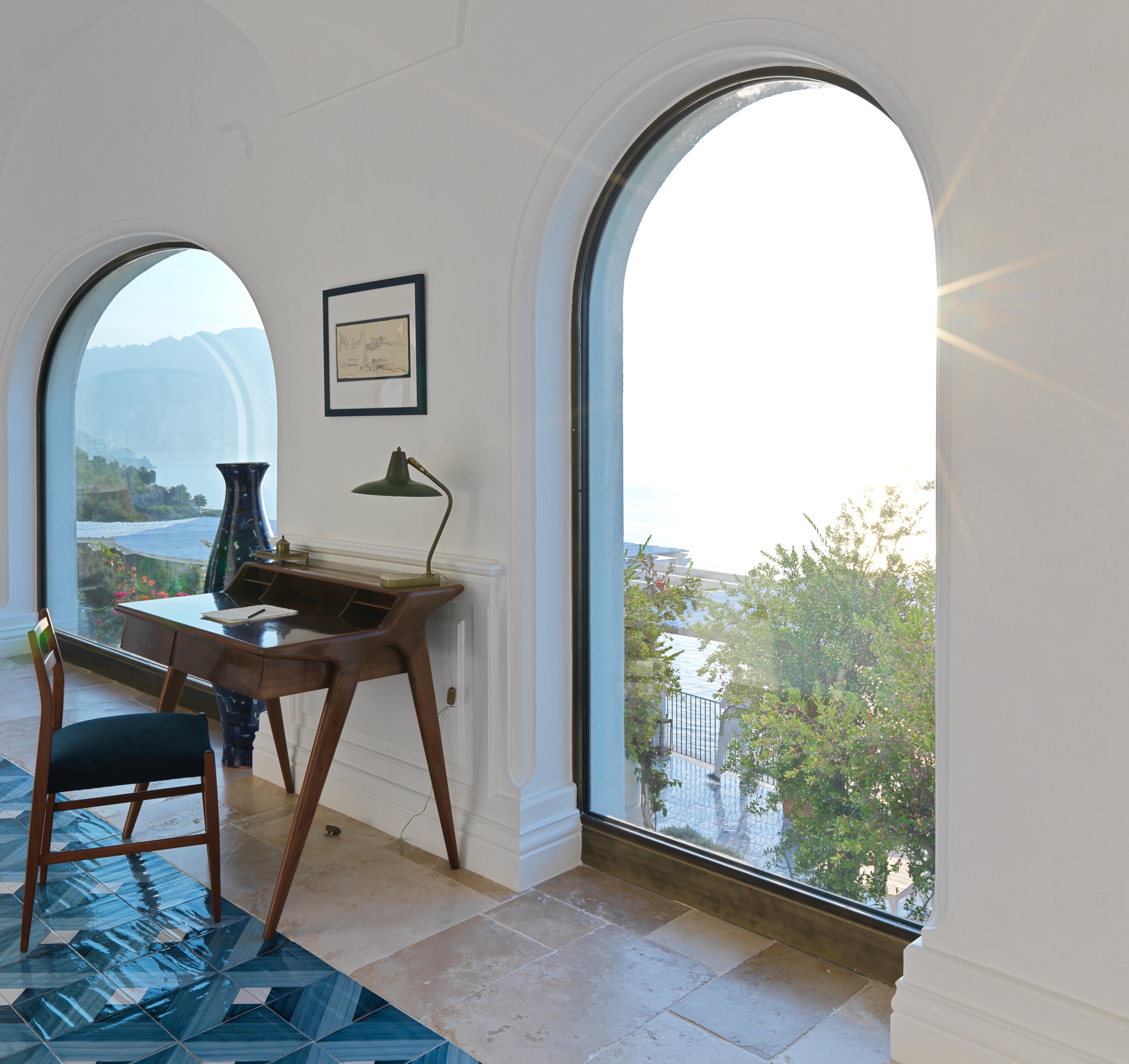 Borgo SantAndrea, Amalfi
Borgo SantAndrea, Amalfi
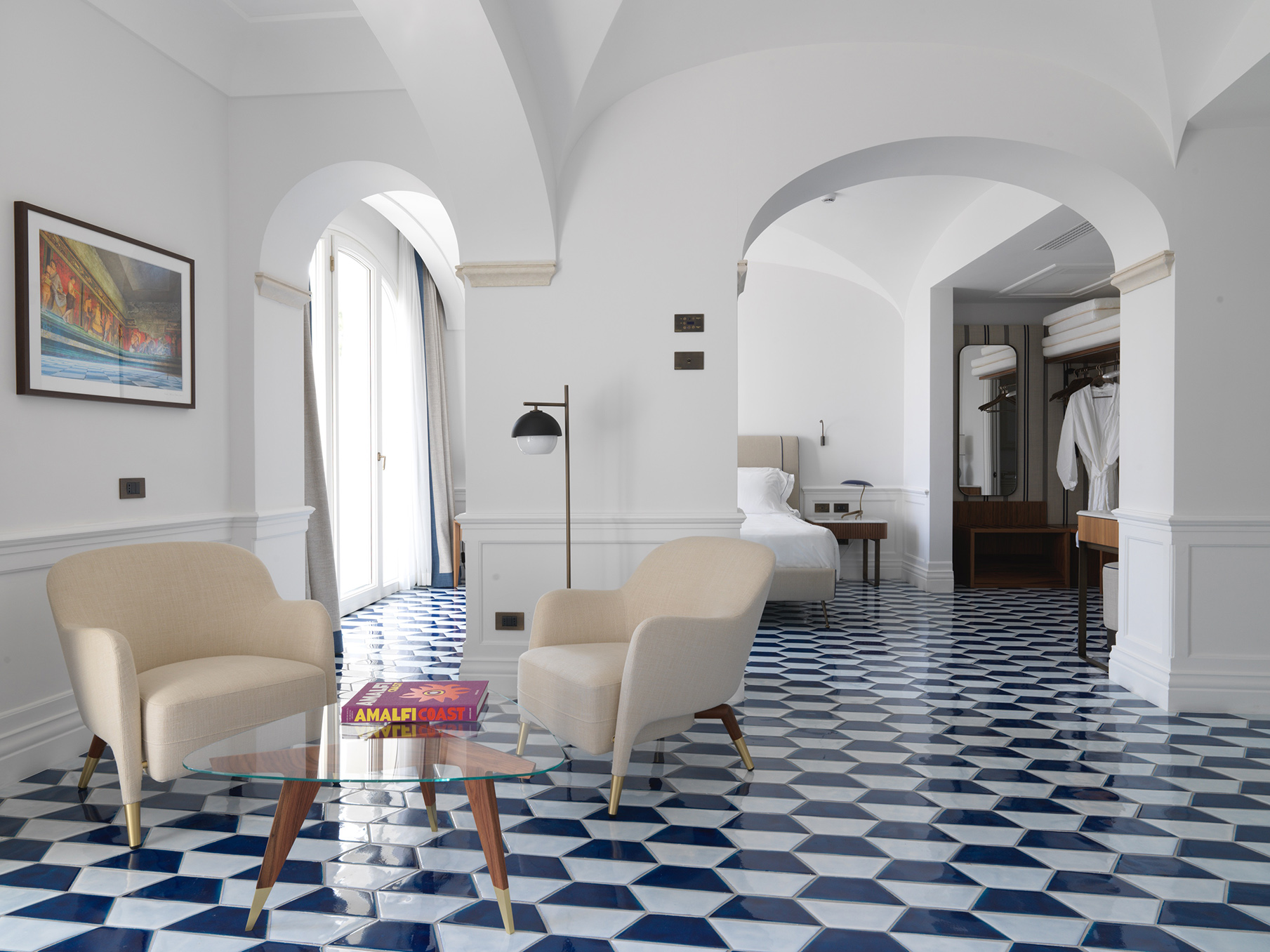 Borgo SantAndrea, Amalfi
Borgo SantAndrea, Amalfi
“Judgment Day, for the Amalfitans who will go to paradise, will be a day like all the others.”
Renato Fucini (1843-1921)
* Original Italian: “Il giorno del giudizio, per gli Amalfitani che andranno in paradiso, sarà un giorno come tutti gli altri.”
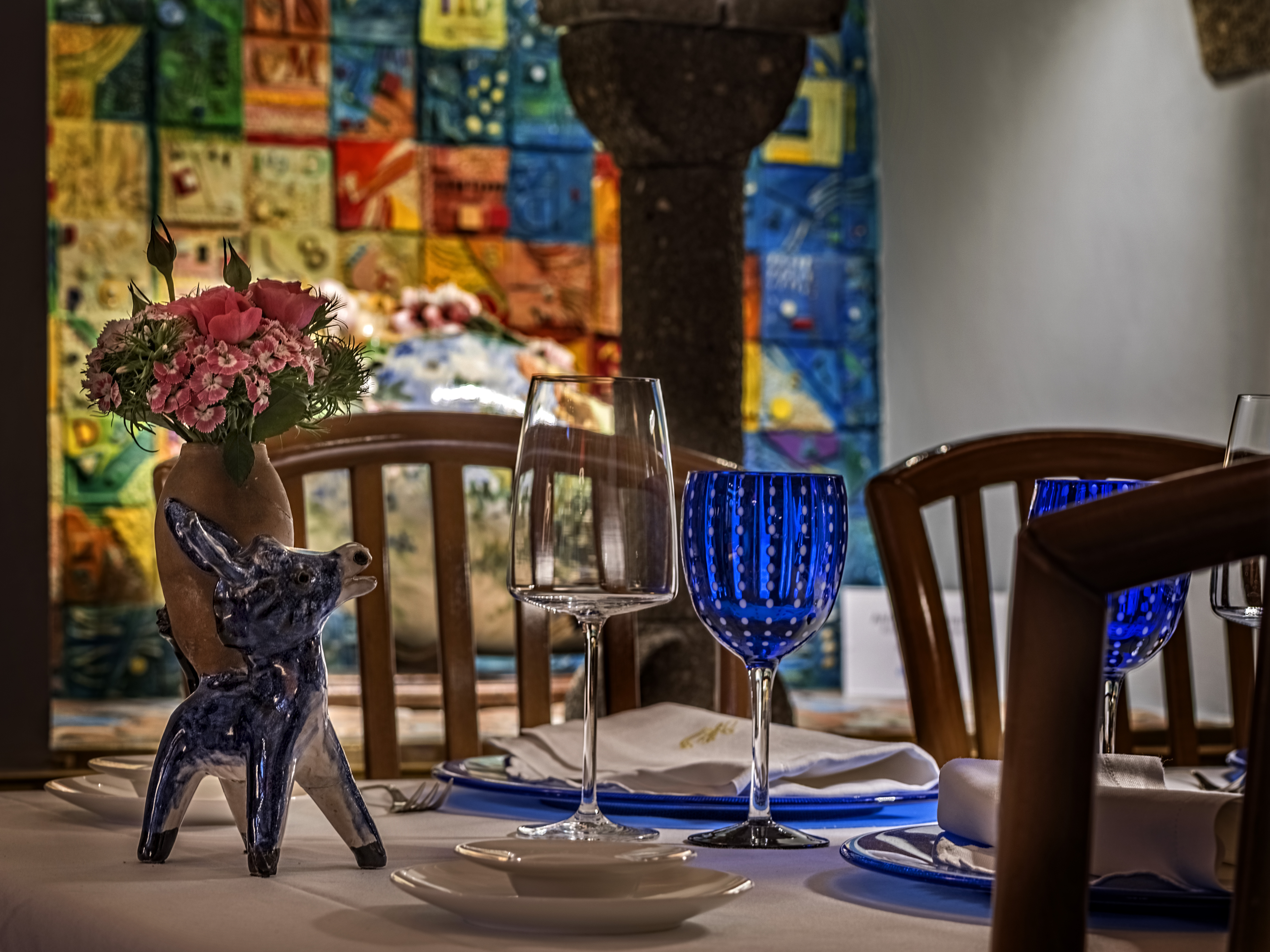 La Caravella restaurant, Amalfi
La Caravella restaurant, Amalfi
Just a few minutes east, the town of Amalfi sits between two distinct landscapes: the shimmering Tyrrhenian Sea and a lush valley where the ruins of paper mills stand testament to the area’s industrious past. Only a few steps from the medieval arsenal where Amalfi’s ships were once built, Ristorante La Caravella has been a cult spot for fine dining since 1959. Its well-deserved popularity only increased in the 1960s when it became the first Michelin-starred restaurant in southern Italy. The eatery has always been a family affair: guiding it today is Antonio Dipino, son of La Caravella's founder Franco.
Inside the restaurant’s home in a 12th-century palace – once owned by the Piccolomini family, who were dukes of Amalfi’s maritime republic – you can dine at one of 12 tables in a setting that has been given over to art. Between the Verona red marble floor and the vaulted, frescoed ceilings, the Dipinos have installed an exceptional art collection, signalling this as one of a select few restaurant museums in Italy. Ceramics by local artists from 1800 to the present day fill La Caravella's art gallery, while the menu is equally creative, presenting the classic flavours of the Amalfi Coast with a modern touch.
This interest in art is an essential aspect of life in Amalfi. Local residents are passionate about sharing their region’s culture and particularly the ceramics that capture the vibrancy of life here. L’Altra Costiera has an appealing selection of ceramics for every corner of your home. Opened in August 2021, its crisp white shelving and pale wood-effect flooring (ceramic, naturally) create a fine setting for the works on display to pop. Designs by talented artists from Vietri sul Mare, Sorrento, Naples and the Amalfi Coast are all on display, offering a taste of the region’s creative talent.
The past is ever present in the urban fabric of Amalfi, something that Amalfitans are passionate about preserving. While modern life buzzes by outside, a 13th-century paper mill is now home to Dalla Carta alla Cartolina, meaning from Paper to Postcard, an interactive museum and gift shop. The mill was nearly lost to time before its current owner, Andrea De Luca, stepped in to create a space dedicated to Amalfi’s handmade paper tradition and golden age of tourism. Original elements of the paper mill blend seamlessly with a digital museum experience created by Kaos Produzioni of Milan, which is driven by historic photographs of the area.
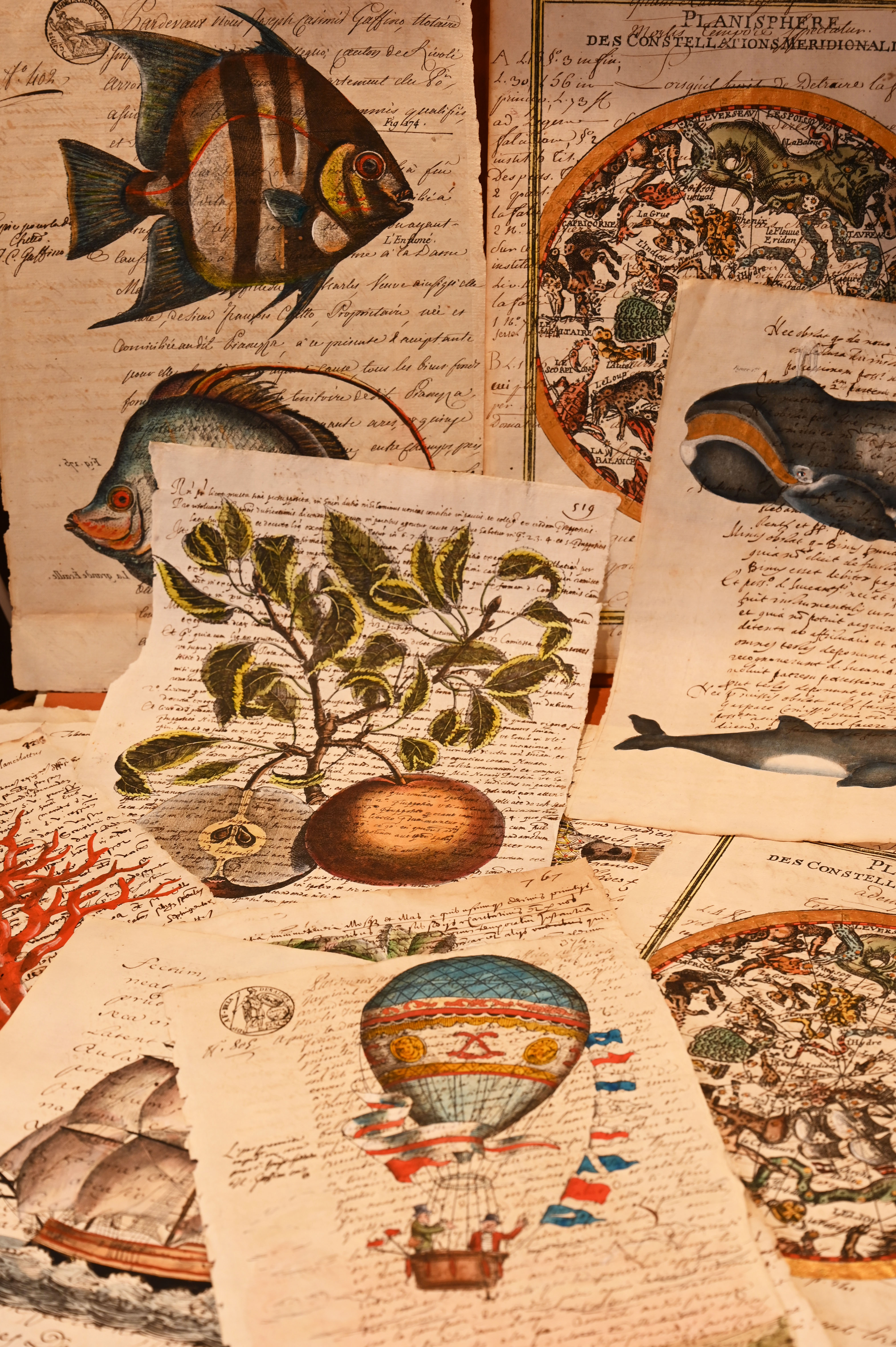 Dalla Carta alla Cartolina stationery, Amalfi
Dalla Carta alla Cartolina stationery, Amalfi
Yet these stories are just one layer of Amalfi. Away from the cultural venues, daily life goes on, seemingly behind the scenes – Amalfitans shopping, chatting with friends, stopping for a coffee. It’s well worth slowing down to look a little closer, and there is no better place to unravel these layers than in Piazza Duomo, the heart of town. Pull up a seat at Pasticceria Pansa, a local favourite and firm fixture in Amalfi’s main square since 1830. One of the Locali Storici d’Italia, it is now led by Andrea, Nicola and Marilla, the fifth generation of the Pansa family. The sweets on display are as appealing as its 19th-century ambience, with wood panelling and decorative glass straight out of another era.
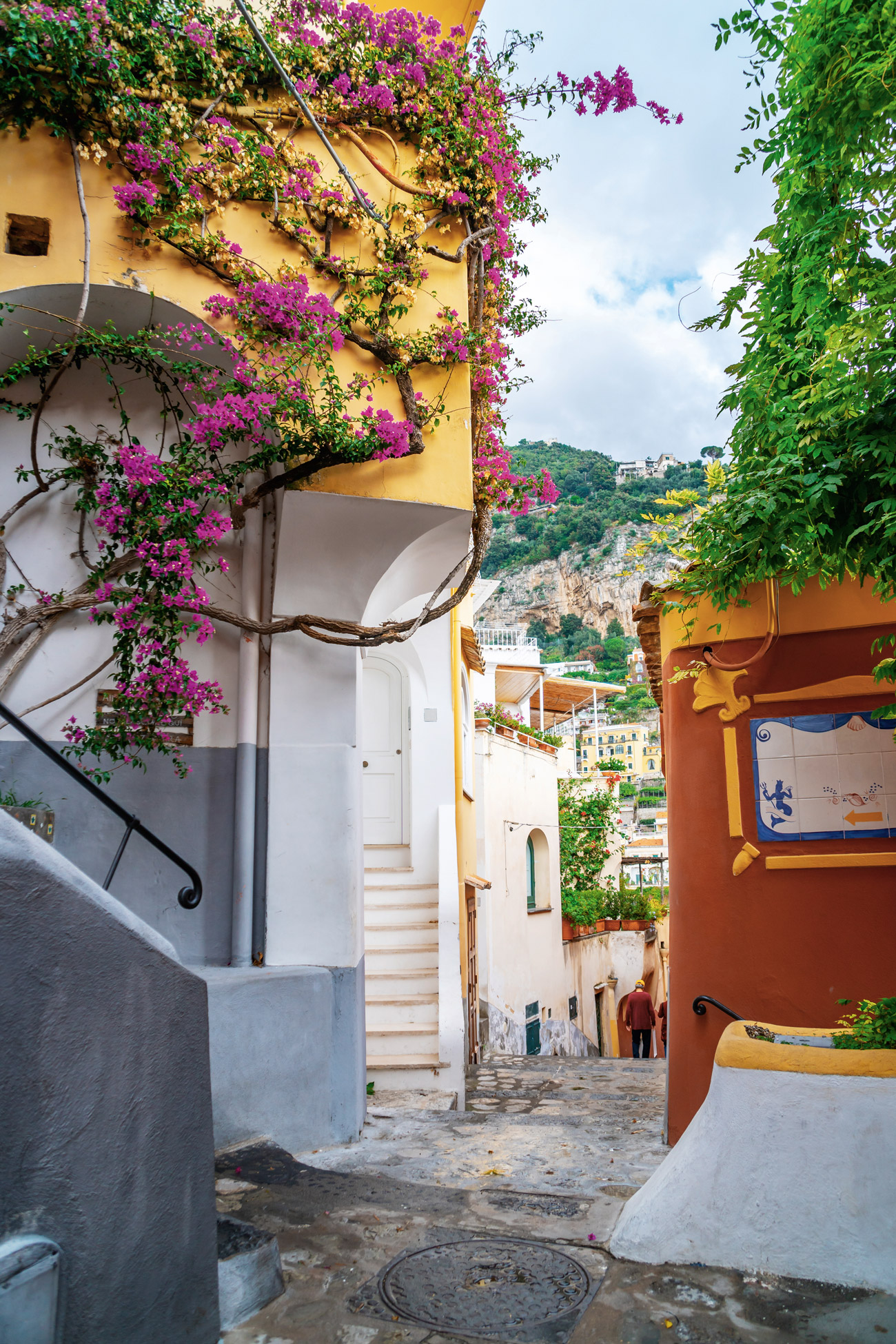
Or grab a spot at Andrea Pansa, a new space dedicated to chocolate and gelato. The prize spot is a table on the tiny terrace, with a view of Amalfi’s resplendent Duomo di Sant’Andrea. Andrea Pansa is where chocolate is transformed into art, with a special mention reserved for their candied lemon peels dipped in chocolate, made with lemons from Villa Paradiso, the Pansa family’s lemon grove in the mountains above. Because paradise, after all, is just another day in Amalfi.
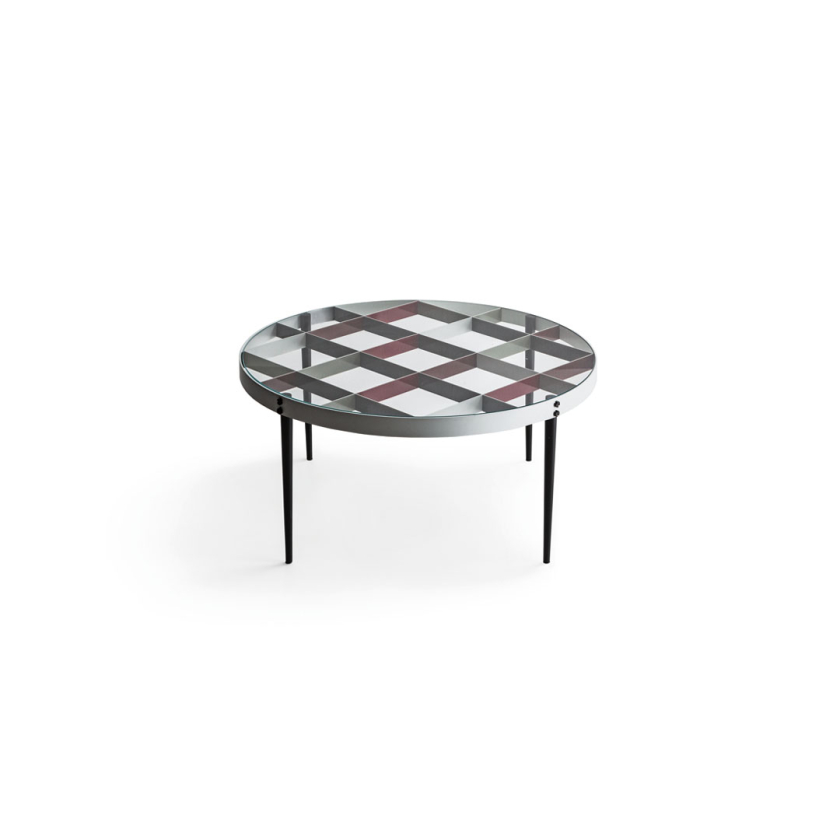
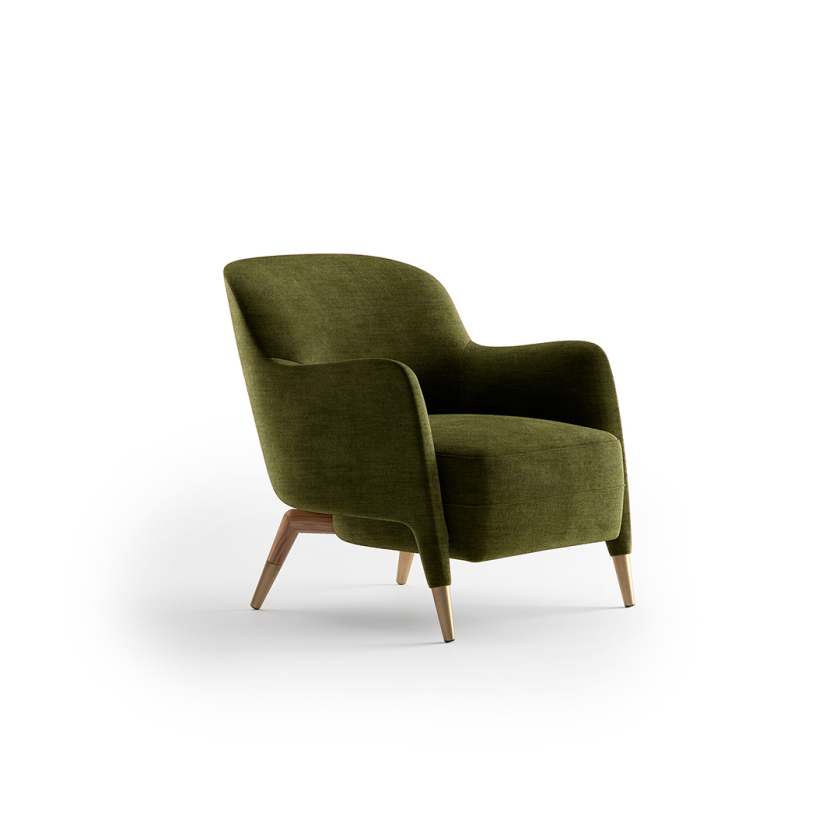
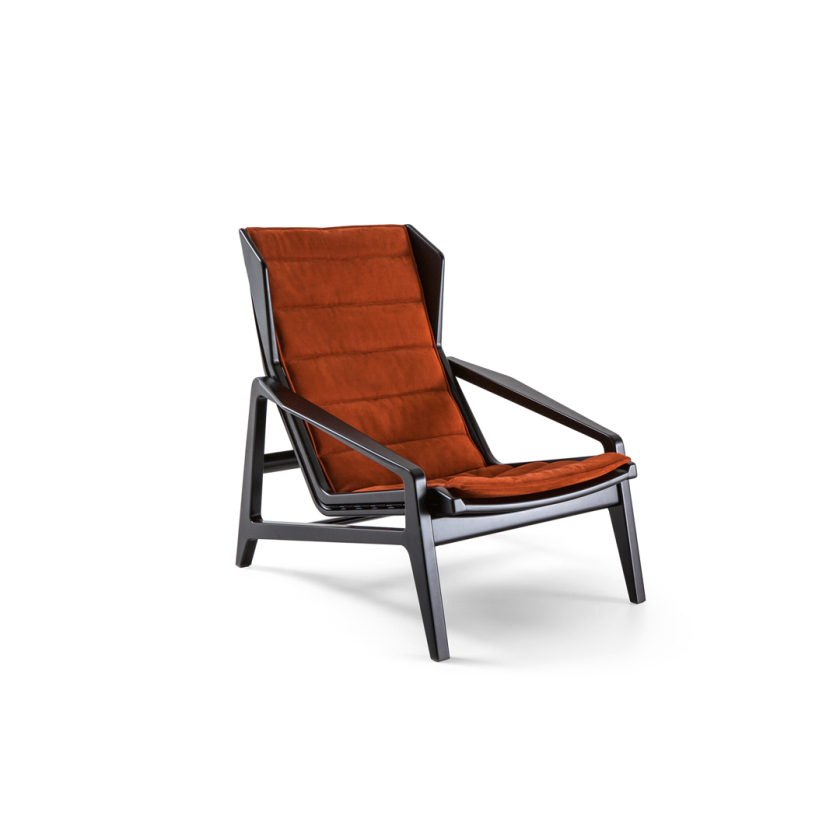
Designers George Yabu and Glenn Pushelberg may operate studios in both Toronto and New York, but the pair are adamant that they do not differentiate between the two.
In 2020, the philosopher Emily Thomas published The Meaning of Travel, a book exploring the philosophy of travel and its importance to people’s lives
Caught between the Mediterranean blue and the warm Middle Eastern air is the island of Cyprus.
Thanks for your registration.